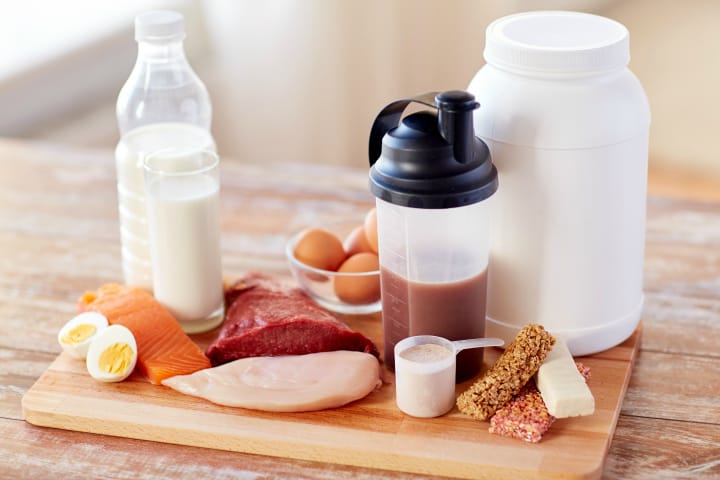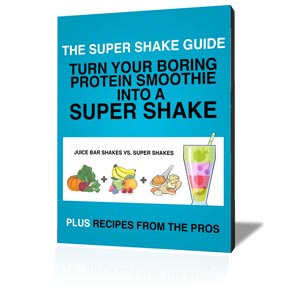The scale is finally moving the right direction. Instead of rigid rules you’ve been listening to your body and paying attention to what it needs. Now it’s paying you back by fitting nicely into that wrap dress you love but haven’t worn in several years.
You’re starting to pay more attention to your second goal: add muscle mass. Not getting massive but maybe adding a little to fill out your triceps and backside. (After all, that wrap dress is sleeveless.) You most certainly don’t want to sacrifice the muscle you currently have in the name of losing weight.
You like the balance you’ve found. You love your energy, how your skin glows and not having to be tied to a food journal. When someone at the gym mentions carb cycling as the solution to building muscle and burning fat you cringe. That feels too much like dieting again. Add some extra exercise sessions, someone else suggests, to kick up your burn and really fatigue each muscle group. You love lifting so it does seem possible to add a couple more sets to your weight routine but two-a-day workouts just aren’t possible right now. When the woman with the amazing shoulders in your yoga class suggests you try a branch chain amino acid supplement while you workout you start to get interested.
You know that there aren’t any magic pills or quick fixes; you’re not afraid to do the work. You’re also not afraid of supplements but you want a data set bigger than a sample of one before you put something else in your body. What you need to know is can branch chain amino acids really give you an edge when it comes to gaining muscle mass?
What are branch chain amino acids?
First, a simple definition of branch chain amino acids, or BCAAs, from examine.com: “branched chain amino acids (BCAAs) are three amino acids with similar structures that beneficially influence the muscles. They can be found in any food containing protein, such as eggs or meat.” The three amino acids mentioned are leucine, isoleucine and valine,
Amino acids are the building blocks of your muscles as well as the other tissues in the body. Unlike protein and fat, our bodies don’t really store amino acids. We have a relatively small pool of amino acids that must be replenished regularly to keep up with routine cell turnover throughout the body, never mind building shapelier shoulders.
BCAAs are already in the foods you eat regularly. There may even be some bonus BCAAs in your favorite protein powder. Before you read on and consider a supplement, you need to take a good look at your diet. Our first line of nutritional offense should always be real food If you’re not consuming quality lean protein foods throughout the day, particularly before and after a weight workout, start there. You may be losing weight due to portion control, limiting sugar and listening to your body’s hunger cues. (Which is awesome! High five!) That doesn’t mean you’ve had a chance yet to balance your plate. If you’re just getting rolling with this healthy living thing make upgrading your daily diet your current priority.
What if your diet is on point? You’re eating eggs for breakfast, edamame and roasted chicken on your big bowl of greens at lunch and salmon for dinner. You know how to make smoothie bowls for protein treats and homemade protein bars for snacks on the go. Can a BCAA supplement give you an edge when it comes to building muscle and burning fat? The science seems to say, “maybe, it depends.”
Two reasons you might take a BCAA supplement
While my review of the research was by no means exhaustive, the studies that stood out to me seemed to support BCAA supplementation in two populations: if you’re eating a calorie restrictive diet or you’re a woman older than 55. While a study in the International Journal of Sports Nutrition was small it does seem to mimic a common situation. The participants were already training but eating a calorie reduced diet to lose fat. In the study, it was found that those who took a BCAA supplement lost fat and maintained lean mass while those who didn’t lost lean mass and body mass. I’ll repeat, this was a small study. Yet it makes sense that if your daily diet has a caloric deficit and you’re training hard you might need a little extra help building your amino acid pool and refueling your body.
The other two studies I want to highlight, one from Nutrition & Metabolism and the other in the American Journal of Physiology, Endocrinology and Metabolism seem to indicate as we age a BCAA supplement might be helpful in maintaining lean muscle mass, adding lean muscle mass and preserving strength. In the name of prevention, an amino acid supplement might be worth considering if you’re a female in mid-life or older. Sarcopenia (age related muscle mass) is a fact of life that women really start to notice in their late 40s and early 50s along with the other changes leading up to and during menopause. The research seems to indicate BCAAs might be a helpful tool. (Always consult your doctor before adding a supplement to your diet as every one is different and what might be safe for one person may not be safe in your personal health situation.)
A problem with BCAA supplements might be the other stuff that sometimes gets added. Two common additives are artificial sweeteners or flavors and creatine. My personal experience with creatine wasn’t pleasant but I know plenty of women who use it with good results. Artificial sweeteners and artificial flavors really don’t add value to your workout so purchase a BCAA supplement that has neither. Just like food, read the labels carefully. Bonus: a BCAA supplement without all the extras usually costs less.
Can a BCAA supplement help burn fat and build muscle? I can’t give you a definitive answer. I can say that your daily nutrition is your biggest ally so make sure you’re getting lean protein through out the day and eating clean whole foods for the bulk of your daily diet. After that the research is mixed but if you’re still eating in a caloric deficit or you’re a mature female hitting the gym hard it might be worth investigating further. Know yourself and listen to the most important data – what your own body says.




